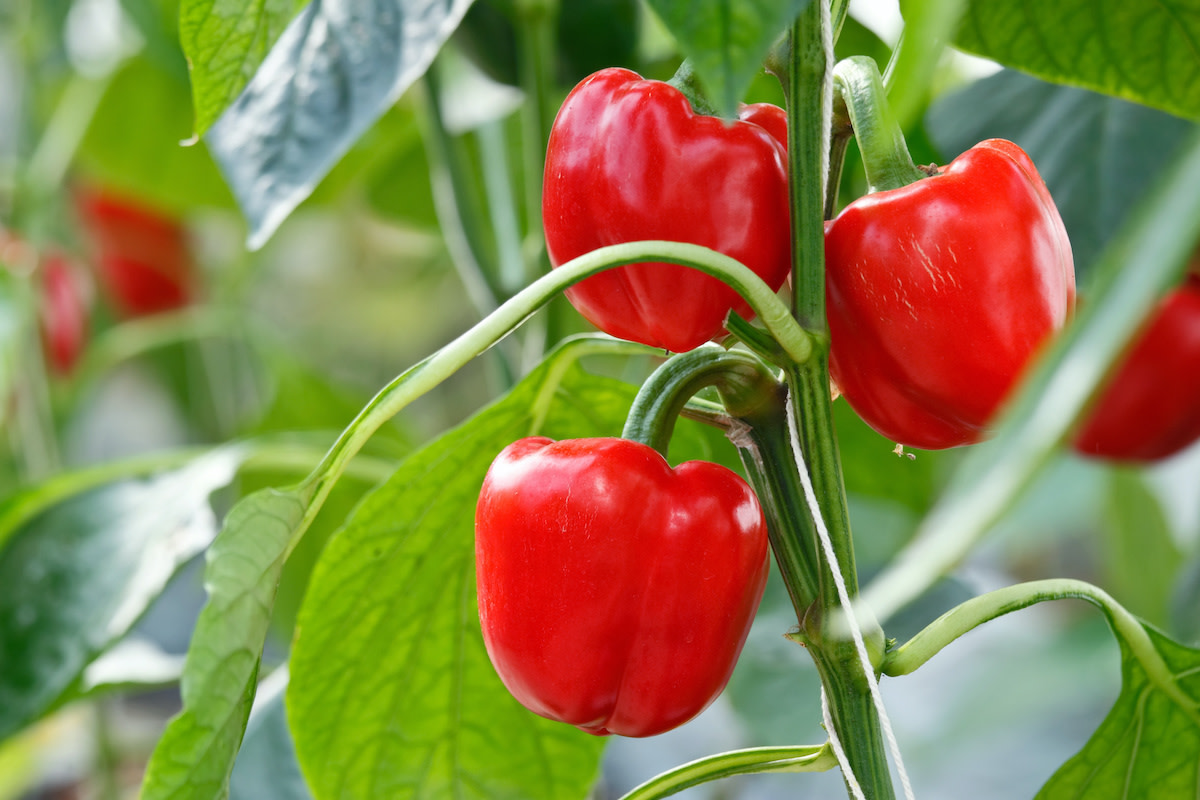Intro to Companion Plants: 8 Companion Plants for Peppers
Written by MasterClass
Last updated: Aug 9, 2021 • 4 min read
Understanding how to select the right companion plants for your pepper crop is one of the keys to helping it thrive throughout its growing season. Learn about the best companion plants for peppers, as well as what plants to avoid.
Learn From the Best
What Is Companion Planting?
Companion planting, or intercropping, is a centuries-old gardening method that involves growing complementary plants near each other to increase productivity and deter pests. Planting certain combinations of plants nearby has many benefits, including increased soil nutrients, pest control, cross-pollination, and increased yield. Although traditionally used in vegetable gardens, this gardening technique can also benefit some flowers, like roses.
Plants that make for good soil mates often share complementary growth habits, nutrient needs, or pest-repelling capabilities. For example, tomato and basil pair well together on the plate and in the garden, as basil defends tomatoes from flies and mosquitoes and increases their productivity. Another example of good soil mates are onions and carrots because the former repel carrot flies.
Just as plants have some preferred friends, they also have some foes. Bad combinations can stunt growth or ruin a crop altogether. For example, broccoli doesn’t grow well alongside radishes because radishes attract flea beetles, one of broccoli’s foes.
What Are Peppers?
Peppers are a type of flowering plant from the Capsicum genus in the nightshade family (Solanaceae). From sweet bell peppers to fiery jalapeños, garden-grown peppers make excellent additions to many dishes and enliven a garden with their bright rainbow shades. These veggie garden mainstays are also an excellent source of vitamins A and C.
Peppers favor a long, warm growing season and grow best in a sunny spot in neutral soil. You can plant nightshades directly in the ground, raised garden beds, or even a large pot. While you may find starting with pepper seeds tricky, peppers easily grow once they take root. Peppers grow upright, so they’ll need a trellis of some sort to climb. When cared for properly, these perennials will provide you with peppers year after year.
8 Companion Plants to Grow With Peppers
Whether you are planting sweet peppers or hot peppers, consider planting your peppers alongside friendly neighbors to help with pests and improve growing conditions. Here are some of the best companion plants to maximize your pepper plant:
- 1. Basil: Planting easy-to-grow basil alongside your peppers can improve the peppers' flavor and may help deter pests like thrips, aphids, spider mites, and flies.
- 2. Carrots: Carrots won’t compete with peppers for garden space or sun, and they also create a living mulch that reduces weeds that can help your pepper crop thrive. Peppers return the favor, providing carrots with needed shade.
- 3. Eggplant: These nightshades make for happy garden bedfellows, favoring similar growing conditions as pepper plants.
- 4. Flowers: Many flowers make excellent pepper companions, including geraniums, alliums, nasturtiums, petunias, and African or French marigolds. These flowers add bursts of vibrant color and attract pollinators and deter many of the pests that can ruin a pepper crop. Geraniums, for instance, are a known repeller of Japanese beetles, while marigolds rebuff squash bugs and soil nematodes.
- 5. Onions: Onions partner well with peppers because they don’t take up much space and protect against slugs and cabbage worms. In the kitchen, they can also improve the flavor of your peppers. From salsa to chili, peppers and onions also pair well in the kitchen.
- 6. Herbs: Herbs, especially oregano, dill, cilantro, chives, and marjoram, are good companion plants because they grow close to the ground, so they won't compete with peppers for space. Their aromatic ground cover can protect against garden pests that can damage your pepper yield. Dill, for instance, protects against the ruinous hornworm. Flowering herbs can attract beneficial insects, such as ladybugs and butterflies. As a bonus, the herbs complement peppers in the kitchen, too.
- 7. Spinach: Low-growing spinach is a good companion for pepper because it crowds out weeds without competing for sunlight or water. The ground coverage spinach provides also creates cool and moist soil—peppers’ favorite conditions for growing.
- 8. Tomatoes: Tomatoes and peppers grow in similar conditions, making them compatible neighbors. However, planting these two nightshades together requires special attention to spacing. Tomato plants require more space than peppers; otherwise, they become vulnerable to disease and pests while shading out pepper plants.
4 Plants to Avoid Growing With Peppers
While peppers have far more friends than foes, there are still some with which they don’t pair well. Avoid planting peppers alongside the following crops to avoid competition for nutrients or attracting the wrong kind of insect:
- 1. Apricot: Avoid planting peppers near apricot trees. A common pepper fungal disease can easily spread to your apricot tree, ruining your fruit trees.
- 2. Beans: Peppers and beans have incompatible soil nutrient needs. Beans require nitrogen to thrive, which can stunt peppers. Beans’ vines also pose a significant choking threat to pepper plants.
- 3. Brassicas: The brassica family—broccoli, brussels sprouts, cauliflower, and kale—has different soil preferences than peppers. Brassicas like neutral soil, while peppers prefer acidic soil. Kohlrabi, in particular, will rob peppers of nutrients while also attracting pests, like cabbage worms and flea beetles.
- 4. Fennel: Fennel attracts certain insects, making it a great companion for some plants—just not peppers. However, fennel is a greedy plant that can inhibit the growth of pepper plants by consuming the nutrients they need to flourish.
Learn More
Grow your own garden with Ron Finley, the self-described "Gangster Gardener." Get the MasterClass Annual Membership and learn how to cultivate fresh herbs and vegetables, keep your house plants alive, and use compost to make your community—and the world—a better place.
